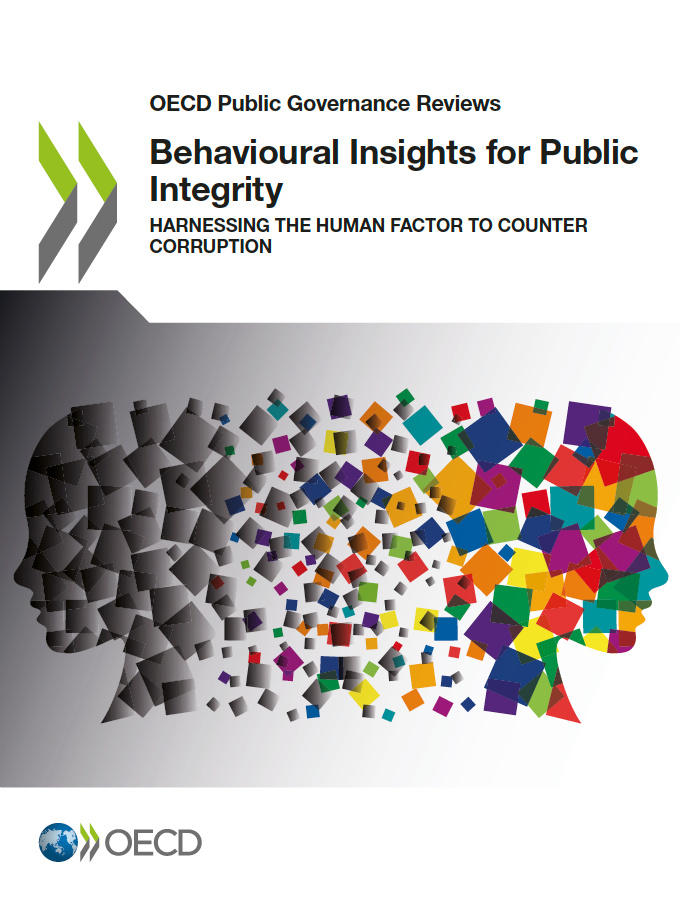As part of their strategy to prevent corruption, development aid organisations can establish and implement ethics frameworks and policies. These ensure that the principles of integrity are clear for, and fully respected by, their staff and external partners. Organisations can complement their usual compliance-based approaches with values-based approaches that promote the well-being of their employees, build trust, and support open communication.
Interviews with development practitioners and desk-based research has identified the principal challenges and solutions for aid agencies to improve compliance with ethics policies, and to support their employees to achieve this. The concept of ‘organisational integrity’ is a common model with four elements: the quality of rules, procedures, and activities of an organisation; the relationship between the organisation and their employees; the integrity of employees; and the ethical quality of employees’ interactions. A ‘culture of integrity’ has been described as what holds organisational integrity together.
An organisation should have in place formal rules and control systems to define their ethical standards and ensure its employees know what is appropriate. However, this might not be sufficient to facilitate a culture of integrity. Employees’ view of corruption is formed by their experiences, by their awareness of rules and procedures, and how values and norms are rooted within the organisation and perceived by others. Building such a culture means understanding and modifying employees’ assumptions – not just their behaviour.
The compliance approach can be combined with the values-based approach to develop and embed a strong culture of integrity and to incentivise staff. The compliance approach emphasises the duty to comply with integrity requirements, and the need to ensure compliance is effective. The values-based approach focuses on the capacity for employees to regulate their behaviour by themselves and mutually – and this is achieved by the active connection between collective goals and the organisation’s values. Through an employee’s capacity to identify and act in line with their employer’s principles and values, values-based approaches can also tackle implicit biases and informal norms, such as gender discrimination.
Such a combination of approaches can typically be seen within ethics policies, and many organisations adopt this hybrid approach. A ‘code of conduct’ is a standard compliance-based tool for integrity management and sets out what is expected from employees – from monitoring to penalties for breaking the rules. A ‘code of ethics’ is founded on the values-based approach and focuses on general values – rather than telling employees what to do, it is a framework for them to follow and relies on their capacity to apply moral reasoning.
The research has identified many challenges for organisations when strengthening their ethics framework and building effective policies. In particular, the decentralised structure of many aid agencies, with employees located across many countries, makes it difficult to operationalise ethics policies. Typically, a small team at headquarters level has to ensure that messages are disseminated and adapted to different audiences. Then staff at a local level are responsible for modifying the rules and communication to fit the context. Managers have to liaise with all concerned to be sure that the integrity frameworks at a local level are adequate. This can be overcome by assigning individuals ‘on the ground’ to convey the messages from headquarters, and to deliver anti-corruption training. Collecting data on integrity issues also helps to detect and address implementation gaps.
Many aid organisations employ staff from and in very different socio-cultural backgrounds –diverse backgrounds mean that rules can be interpreted differently. The notion of ethics within the organisation should be fully defined so that it can be operationalised. Achieving coherence and consistency between organisational ethics policies and individuals’ ethical expectations is an important element for the strengthening of integrity. Establishing open communication on ethical aspects with its employees and supporting them when faced with ethical dilemmas also helps the organisation to identify implementation gaps, or the requirement for further training or sensitisation.
Compliance can be enhanced – and ethical thinking encouraged – through the implementation of anti-corruption training. A compliance-based approach typically involves individual (eg self-paced) or collective learning. A values-based one looks at facilitating dialogue and raising employee awareness on ethical issues, to develop their capacity for active judgement on morally complicated cases. Whatever training route is selected, it should be a safe environment for employees to ask questions and voice concerns and ideas.
An integrity culture can be strengthened by aligning the work conditions with employees’ needs and desires. This can be achieved through the psychological contract, ie the employee–organisation relationship. Studies show a link between work conditions and ethical behaviours, eg factors such as job security, benefits, and prospects for career development, can limit the risk of short-term corrupt behaviours. Not all development aid agencies offer job security and career prospects for employees – many positions are fixed-term contracts. Those employees without career opportunities are less likely to have psychological safety, and this may impact their ability to raise concerns.
Social norms, as a values-based approach, can help detect and prevent corruption – for example by identifying beliefs within a group or personal attitudes towards corruption and then attempting to modify those aspects. It can be integrated within management processes to influence an integrity culture, such as through role modelling by ethics leaders; tools such attitudinal integrity surveys, ethics discussions, and focus groups can also help identify beliefs and attitudes.
To build a virtuous work environment, which encourages engagement by employees, and reduce the risk of malpractice, it is recommended that development aid organisations combine the compliance and values-based approaches. Recognition of indicators relating to employees’ well-being and work satisfaction should inform corruption-risk identification processes. Moving the focus from the individual to the network, and considering the organisational and social factors related to corruption, can assist with the design of effective anti-corruption policies. Gender is an important consideration when improving integrity in the workplace: references to gender within ethics policies and training programmes can promote gender equality by boosting benevolent views, supporting gender parity in the work environment, and championing inclusive and gender-sensitive corruption reporting and whistleblowing mechanisms.


